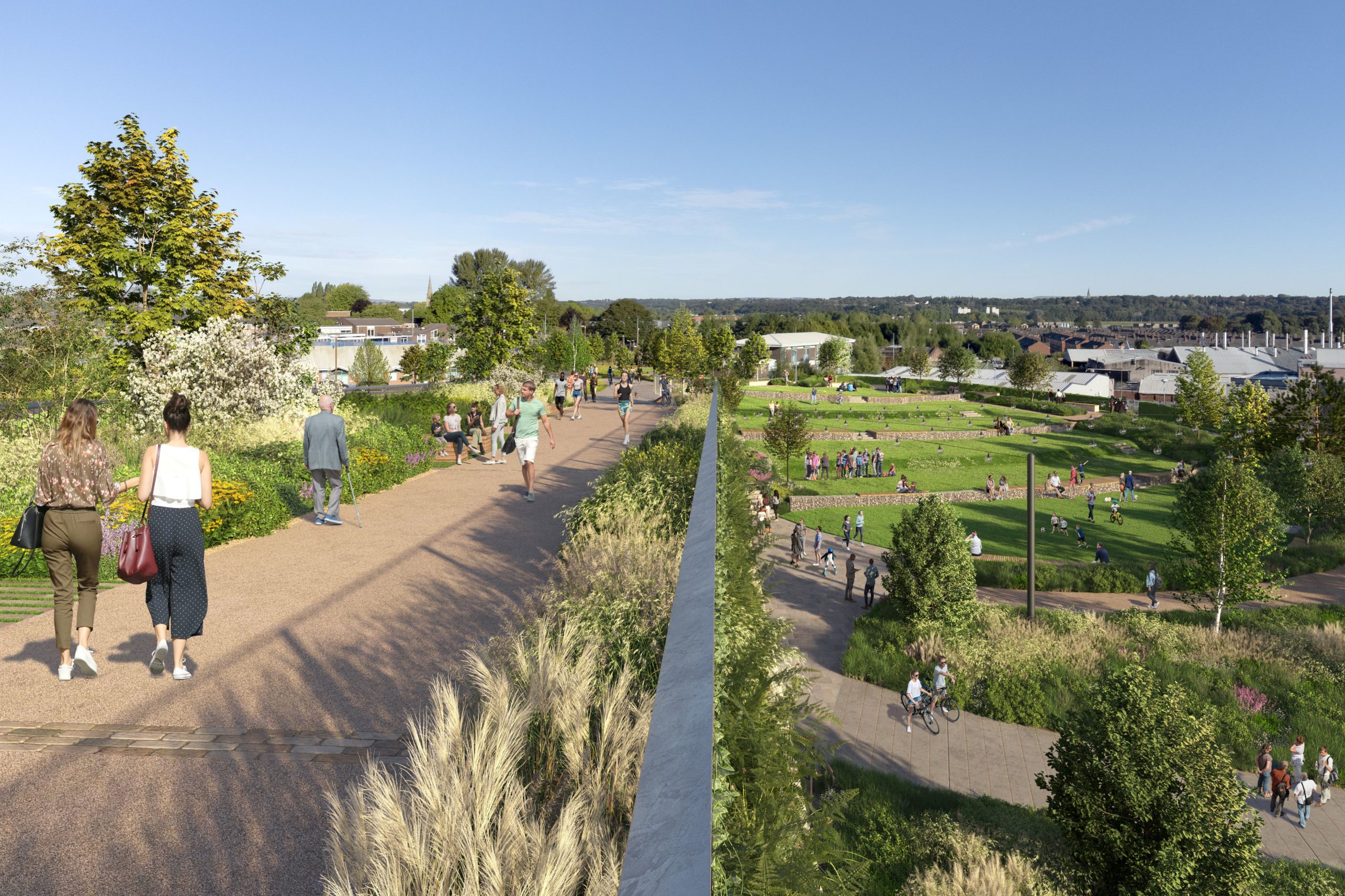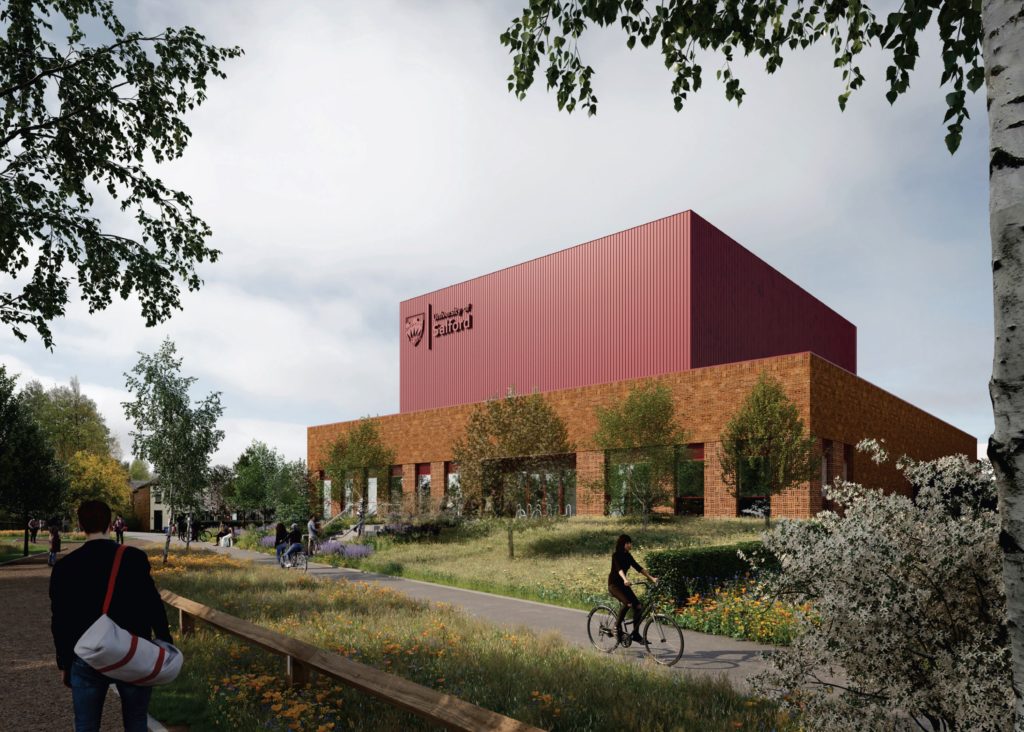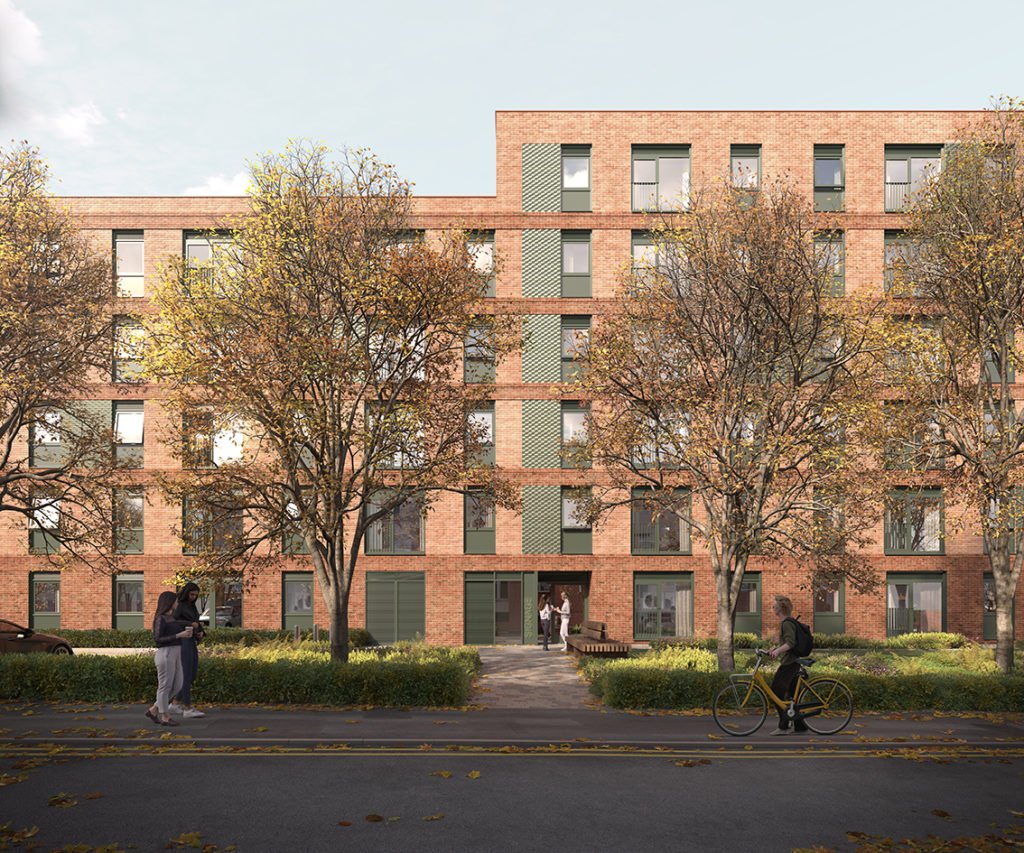Our Sustainable Future case study: Crescent Salford
27.03.25 5 min read

Crescent Salford is a £2.5 billion partnership, set across a 240-acre city district – but with impact across Salford and beyond.
Being delivered by ECF – our partnership with Legal & General and Homes England – together with the University of Salford and Salford City Council, it’s a place where industry, education, and community come together.
An area packed with assets, it includes the University of Salford’s Campus, Salford Crescent Train Station, Peel Park, Salford Innovation Forum, and Salford Museum & Art Gallery, and much more. Crescent is a once in a generation opportunity to fully exploit and maximise the value these assets can create – for the economy and the community. This is what the Crescent Salford Masterplan is delivering.
We are creating up to 7,000 full time jobs, around 1.5m sq ft of commercial space, and 3,000 new homes. The masterplan, which is spread over six distinct zones will be delivered with over £1 billion of private sector investment.
Working with the University of Salford, innovation is fundamental to our approach. Both the Peel Park and Frederick Road Campuses are at the heart of the masterplan and an Innovation Zone – Crescent Innovation – will help leverage their established value.
Sitting at a strategic location within Salford’s Innovation Triangle – along with Salford Quays and MediaCityUK, the University of Salford, and Salford Royal Hospital – it’s an area which is already home to an internationally significant cluster of organisations.

Acoustics
Crescent Innovation will deliver the right commercial opportunities to foster a network of public, private, and academic collaborators. With a focus on acoustics, robotics, orthotics, and prosthetics it’s a unique opportunity to create jobs and attract global investment.
For example, we are already investigating a cutting-edge acoustics research facility. It will build on the University’s reputation as a world-leader in acoustics testing, consultancy, and research. As the economy grows, we will need new homes to serve an expanding community. We are already delivering Willohaus, as part of a new Adelphi Village. The 100 Passivhaus-certified homes will be the largest collection in the North West.
Being delivered in partnership with Salix Homes, they will all be affordable, and due to their highly efficient Passivhaus standards will help residents reduce their heating and fuel bills. It puts more money in people’s pockets.
We are also introducing Muse home – our first opportunity to deliver Passivhaus low- rise and family homes – at Farmer Norton. If successful, we expect to be able to roll out the model across the country. Taking advantage of the biodiversity and green spaces across the Crescent masterplan, we are leading the way with sustainable initiatives.
We are planting 1,000 trees, creating over 2m sq ft of public space, investing in renew- able energy, and introducing the very latest in building technology. It’s a major step forward for carbon neutrality for the whole of Greater Manchester, not just Salford.
Salford Rise, for example, will connect Crescent Innovation and the University of Salford with surrounding communities. The elevated five-acre green walkway has been partially funded by £13.17 million from the Levelling-Up Fund. It’s a recognition of its economic potential. The quality public spaces and improved accessibility will enable new and established communities to reach the employment and education opportunities we will deliver. Crescent Salford is an opportunity to create a new economic and innovation engine for Salford, Greater Manchester, and the North West. A place for young people to learn, for organisations to innovate, and communities to thrive.

Willohaus, Passivhaus homes
Social Value Data
We are in the early stages of this project, however we are already starting to create social value and contribute the local economy. So far our appointed professional services team have:
– 14 people from Greater Manchester hired or retained
– 183 employees have access to wellbeing programmes
– 417 volunteering hours
– 22 hours of DE&I training
– 12 hours of expert business advice for VCSEs and MSMEs